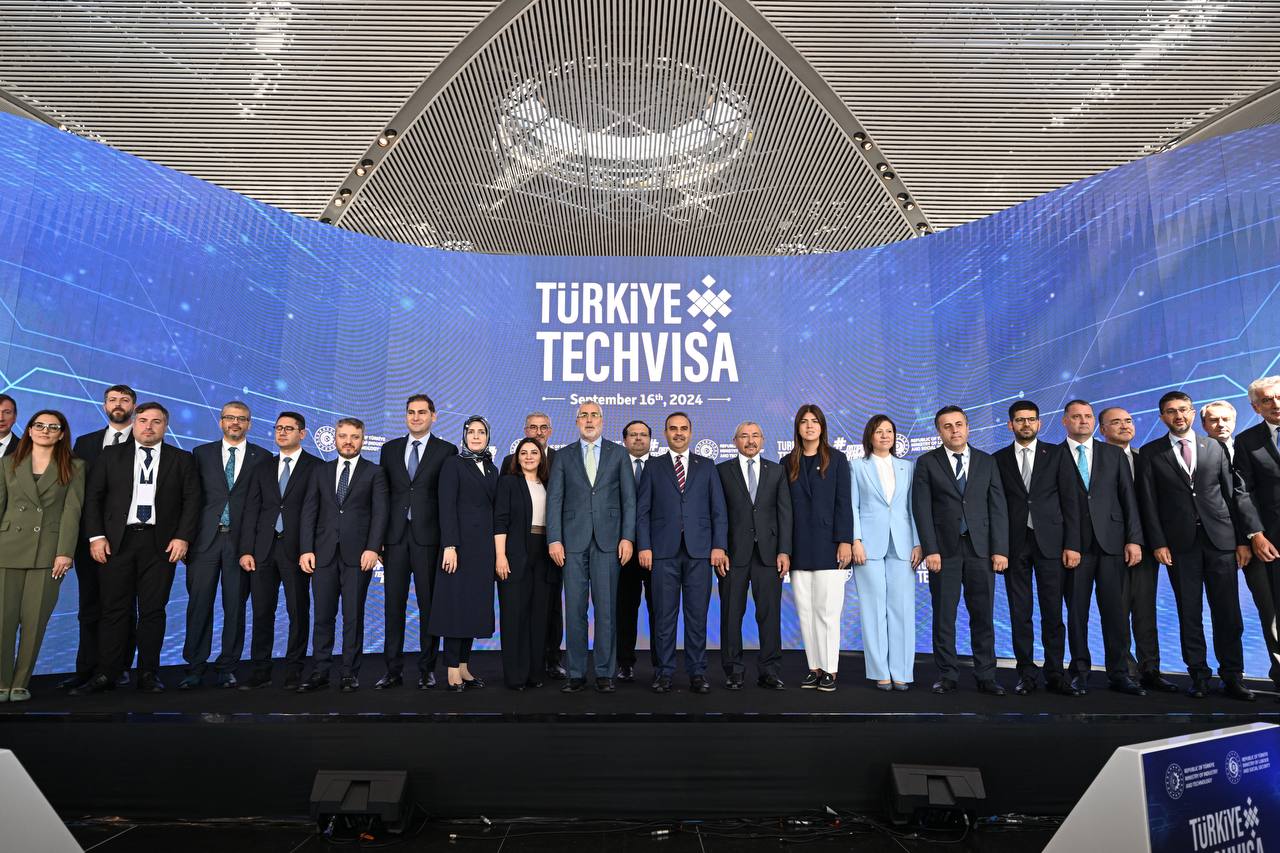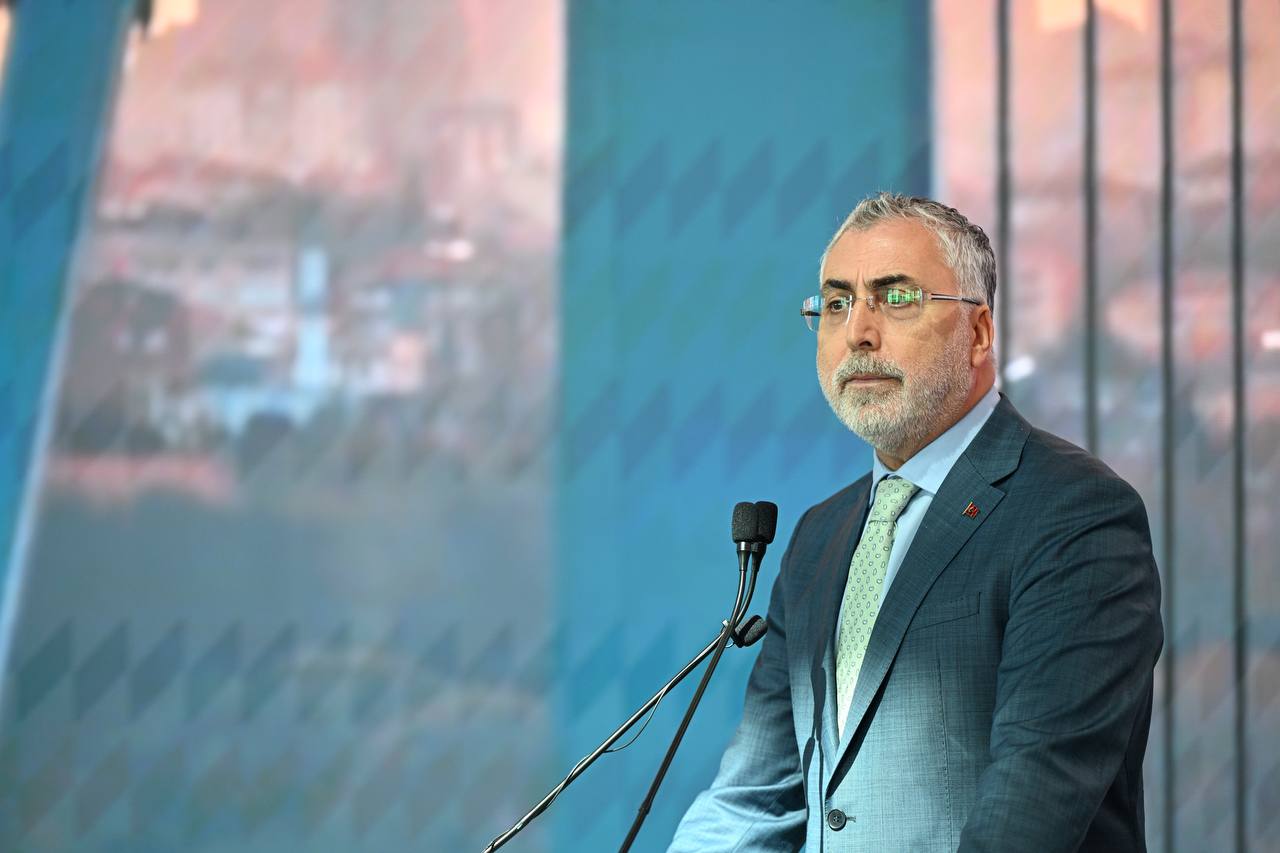Türkiye Tech Visa: 3-year work permits for foreign innovators
 The Türkiye Tech Visa program aims to bring new ventures and talents to the country. (AA Photo)
The Türkiye Tech Visa program aims to bring new ventures and talents to the country. (AA Photo)
Türkiye has taken a significant step to bolster its tech ecosystem by introducing the Türkiye Tech Visa program. This initiative aims to remove bureaucratic barriers for foreign entrepreneurs seeking to establish businesses in the country.
Minister of Labor and Social Security Vedat Isikhan announced that the Türkiye Tech Visa program will provide work permits for up to three years to foreigners wishing to establish startups in Türkiye.


Speaking at the launch of the program, Isikhan highlighted that rapid changes in the labor market are increasing the demand for skilled labor in certain sectors and professions. He emphasized that the ministry is preparing to integrate qualified foreign labor into the country’s workforce while prioritizing and protecting local workers. “In cases where our own labor supply is insufficient, we benefit from the complementary effect of international labor via Türkiye Tech Visa,” he said.
Isikhan further noted that the program, supported by the Ministry of Industry and Technology and other relevant public institutions, started on the previous day. Under this program, foreigners establishing startups in Türkiye will benefit from expedited and exceptional work permit processes, with initial applications granting work permits for up to three years which Türkiye Tech Visa provides.
This will shorten bureaucratic processes and address the needs of this fast-moving sector with an efficient administrative process. The Türkiye Tech Visa program aims to bring new ventures and talents to the country while enhancing the capacity of the local workforce and adding value to the innovation system through their expertise.
12 business demands
Sekib Avdagic, president of the Istanbul Chamber of Commerce (ICOC), presented the demands and expectations of Istanbul’s business community at the ICOC September council meeting attended by Vedat Isikhan. Avdagiv stated that ICOC represents the largest number of employees and emphasized the close cooperation with the Ministry of Labor and Social Security.
Avdagiv listed 12 key demands and expectations:
- Update the Labor Law: To mitigate the financial burden on businesses imposed by strict employment regulations, such as severance pay, unemployment insurance, and reinstatement compensation, it is suggested that the Labor Law be revised to create a more business-friendly environment.
- Flexible short-time working allowance: To help businesses navigate economic downturns and preserve jobs, it is proposed that the Labor Law be amended to allow for more flexible short-time work arrangements.
- Review income tax brackets and social security limits: Ensure income tax exemptions and social security contribution limits are updated, and verify that meal allowances remain at least 50% of the daily minimum wage.
- Limit the statute of limitations for claims: Labor courts should limit the statute of limitations for claims and compensation cases to one year.
- No clawback for exceptional employment support: If an employer does not cause an exceptional job loss, there should be no clawback for employment incentives and support.
- Scheduled social security inspections: Routine social security inspections should be conducted by appointment, except in exceptional cases.
- Simplify foreign employment criteria for employers: Consider making it easier to meet requirements such as maintaining a ratio of one foreign worker to five Turkish workers.
- Equalize pension payment days: Ensure that the number of premium payment days needed to qualify for a pension is consistent for both self-employed and other insured individuals.
- Revise pension system: Starting in 2025, the pension system should undergo revisions to prevent potential 34% losses in retirement payments.
- Emphasize vocational education centers (MESEM): The MESEM system, which allows one day of school education and four days of work per week, should be emphasized.
- Increase pocket money for on-the-job training: Higher stipends for on-the-job training programs can play a motivational role.
- Facilitate freelance registration and social security: Improving registration and access to social security rights for freelancers is crucial.



